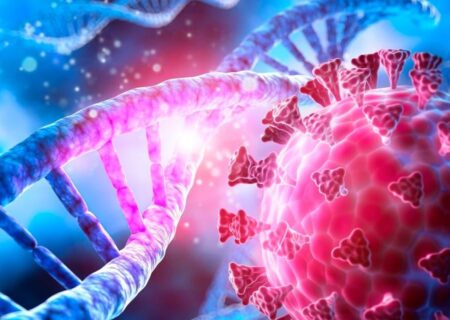Choosing A Level Chemistry

What is Chemistry?
Chemistry is the study of matter, its properties, structure, composition and behaviour, analysing them to see what happens when they change in chemical reactions.
What is an A Level?
A Levels (Advanced Level) qualifications are level 3, two-year qualifications (GCSEs are level 2) offered in England, Wales, and Northern Ireland for students aged between 16 and 19 years old (though adults can also take them). They usually focus on academic subjects, compared to vocational qualifications like BTECs, NVQs and T Levels. A Levels are not compulsory, unlike GCSEs. A Levels can lead to further study (e.g. university), training (e.g. an apprenticeship), or work.
Most people usually study three A Levels but you can study more but note your performance in each may suffer. University offers are normally based on three A Level grades, and taking a fourth or more can have an impact on grades.
They’re usually assessed by a series of examinations.
What Grades Do I Need to Study A Level Chemistry?
You normally need:
at least five GCSEs at grades 9 to 4 / A* to C
at least a grade 6 in chemistryHowever, please note that the specific requirements needed to study A Level Chemistry will vary across sixth-form schools and colleges so it’s important to verify with them what grades you will need.
Where Can I Study A Level Chemistry?
16 – 19 year olds can study A Level chemistry for free at any sixth-form school or college. Most students study A Levels full-time but you can also study them part-time at some colleges.
What is the Difference Between AS and A2?
AS levels are half an A Level. A2 refers to the second year of an A Level. AS Levels are standalone courses, you’ll take your AS exams at the end of your first year and in order to obtain an A Level you’ll need to take all the exams at the end of the two-year course.
A Levels via Distance Learning
If you feel that you let yourself down with your A Level Chemistry results, or perhaps you are an older adult and didn’t take any at all, why not look into distance learning where you can study for your A Level from the comfort of your own home and at your own pace. This is perfect for full-time workers, full-time parents or carers etc.
Distance learning courses aim to provide you with the same quality and experience as you would benefit from in a classroom environment but to best suit your needs at home with professional tutors guiding you throughout the course. There are a number of online institutions offering you the chance to gain your A Level in chemistry via distance learning just use a search engine to find them. Note that you have to pay for distance learning, they are not government funded.
What is in the A Level Chemistry Syllabus?
There are many exam boards including: AQA, Pearson Edexcel Chemistry A (Salters-Nuffield), Pearson Edexcel Chemistry B, OCR Chemistry A, OCR Chemistry B.
I will provide the syllabus and exam paper details of the most popular, sat by over 35,000 students in 2022, AQA.
AQA A Level Chemistry Subject Content
- 3.1.1 Atomic structure
- 3.1.2 Amount of substance
- 3.1.3 Bonding
- 3.1.4 Energetics
- 3.1.5 Kinetics
- 3.1.6 Chemical equilibria, Le Chatelier’s principle and Kc
- 3.1.7 Oxidation, reduction and redox equations
- 3.1.8 Thermodynamics (A-level only)
- 3.1.9 Rate equations (A-level only)
- 3.1.10 Equilibrium constant Kp for homogeneous systems (A-level only)
- 3.1.11 Electrode potentials and electrochemical cells (A-level only)
- 3.1.12 Acids and bases (A-level only)
- 3.2.1 Periodicity
- 3.2.2 Group 2, the alkaline earth metals
- 3.2.3 Group 7(17), the halogens
- 3.2.4 Properties of Period 3 elements and their oxides (A-level only)
- 3.2.5 Transition metals (A-level only)
- 3.2.6 Reactions of ions in aqueous solution (A-level only)
- 3.3.1 Introduction to organic chemistry
- 3.3.2 Alkanes
- 3.3.3 Halogenoalkanes
- 3.3.4 Alkenes
- 3.3.5 Alcohols
- 3.3.6 Organic analysis
- 3.3.7 Optical isomerism (A-level only)
- 3.3.8 Aldehydes and ketones (A-level only)
- 3.3.9 Carboxylic acids and derivatives (A-level only)
- 3.3.10 Aromatic chemistry (A-level only)
- 3.3.11 Amines (A-level only)
- 3.3.12 Polymers (A-level only)
- 3.3.13 Amino acids, proteins and DNA (A-level only)
- 3.3.14 Organic synthesis (A-level only)
- 3.3.15 Nuclear magnetic resonance spectroscopy (A-level only)
- 3.3.16 Chromatography (A-level only)
AS Assessments (1-year standalone course)
| Paper 1 |
|---|
| What’s assessed: Relevant physical chemistry topics (sections 3.1.1 to 3.1.4, 3.1.6 and 3.1.7) Inorganic chemistry (section 3.2.1 to 3.2.3) Relevant practical skills |
| Assessed: written exam: 1 hour 30 minutes – 80 marks – 50% of AS |
| Questions: 65 marks: short and long answer questions 15 marks: multiple choice questions |

| Paper 2 |
|---|
| What’s assessed: Relevant physical chemistry topics (sections 3.1.2 to 3.1.6) Organic chemistry (section 3.3.1 to 3.3.6) Relevant practical skills |
| Assessed: written exam: 1 hour 30 minutes – 80 marks – 50% of AS |
| Questions: 65 marks: short and long answer questions 15 marks: multiple choice questions |
A Level Assessments (full two-year course)
| Paper 1 |
|---|
| What’s assessed: Relevant physical chemistry topics (sections 3.1.1 to 3.1.4, 3.1.6 to 3.1.8 and 3.1.10 to 3.1.12) Inorganic chemistry (section 3.2) Relevant practical skills |
| Assessed: written exam: 2 hours – 105 marks- 35% of A-level |
| Questions: 105 marks: short and long answer questions |

| Paper 2 |
|---|
| What’s assessed: Relevant physical chemistry topics (sections 3.1.2 to 3.1.6 and 3.1.9) Organic chemistry (section 3.3) Relevant practical skills |
| Assessed: written exam: 2 hours – 105 marks – 35% of A-level |
| Questions: 105 marks: short and long answer questions |

| Paper 3 |
|---|
| What’s assessed: Any content Any practical skills |
| Assessed: written exam: 2 hours – 90 marks – 30% of A-level |
| Questions: 40 marks: questions on practical techniques and data analysis 20 marks: questions testing across the specification 30 marks: multiple choice questions |
Career Options for Those Who Have Studied A Level Chemistry
Possible career choices that require A Level Chemistry include:
analytical chemist, biotechnologist, chemical engineer, clinical scientist (biochemistry), crime scene investigator, environmental consultant, food technologist, forensic scientist, formulation chemist, geochemical engineer, higher education lecturer, materials scientist, medicinal chemist, medicine. nanotechnologist, pharmacologist, pharmacist, process chemist, research scientist (physical sciences), science writer, scientific laboratory technician, teaching (secondary school teacher, further education teacher, toxicologist and a wide range of other careers.



